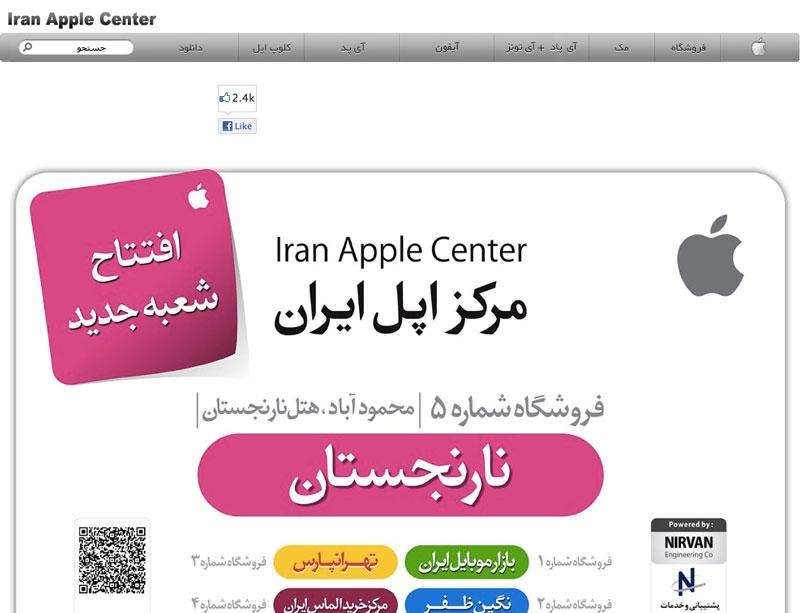A new anti-smuggling initiative set to debut in Iran later this week could result in an effective iPhone ban until Apple agrees to officially do business in the country as a registered entity, local reports say.
According to a Tasnim News Agency report on Monday, later translated by The Japan Times, government officials intend to enact a set of anti-smuggling rules that will, in effect, ban the use iPhone if Apple does not act.
"If Apple will not register an official representative in Iran within the next few days, all iPhones will be collected from the market," the director of Iran's anti-smuggling office told reporters.
Specifically, Iran's government will implement a country-wide mobile phone registry in cooperation with cellular operators, telecommunications unions and resellers that requires all cellphones be registered with a central database prior to use. Since Apple is not recognized as a legitimate business, its products cannot be registered under the new guidelines. The ruleset is not retroactive, however, meaning existing iPhones — smuggled or not — will not be scrutinized.
Iran's government did not elaborate on how it plans to detect unregistered devices, though it can be assumed the system involves cross referencing device IDs with the anti-smuggling database as they show up on cellular networks. As for enforcement, a Tehran IT union representative suggested illegitimate iPhones will be confiscated.
Despite not having an official presence in Iran, Apple's products are in high demand through unauthorized resellers. Like other high-tech U.S. companies, Apple was barred from selling products in Iran due to trade sanctions, though reports in 2012 revealed a thriving "underground" market for iPhones and other off-limits hardware.
In 2013, following a relaxation of trade restrictions under the Obama administration, Apple announced it would restart sales to customers who planned to travel back to Iran. A year later rumors suggested the company was looking to set up a network of authorized resellers in the region, though an official presence has yet to materialize.
 Mikey Campbell
Mikey Campbell








 Charles Martin
Charles Martin

 Malcolm Owen
Malcolm Owen
 William Gallagher
William Gallagher

 Christine McKee
Christine McKee
 Wesley Hilliard
Wesley Hilliard








33 Comments
If there is no official presence yet in Iran, then every iPhone in the country is anyway imported. So, how does banning the iPhone affect Apple? I guess the only thing is that when Apple is finally ready to officially launch in Iran, there will be some extra red tape.
With the nuclear deal haven't trade restrictions eased? Maybe Apple just has to fill out the paperwork.
Actually that deal STOPS Iran's weapons plans. But thanks for playing.
Of course if Apple wanted to go that judgmental route there's a lot of American states they'd have to stop selling in eh? Awkward.
Seems like it's just going to annoy the wealthy portion of Iran and provide a lot of embarrassment for government officials if they or their children are seen using an iPhone. Meanwhile it's trivial to detect iPhones when they use web data.